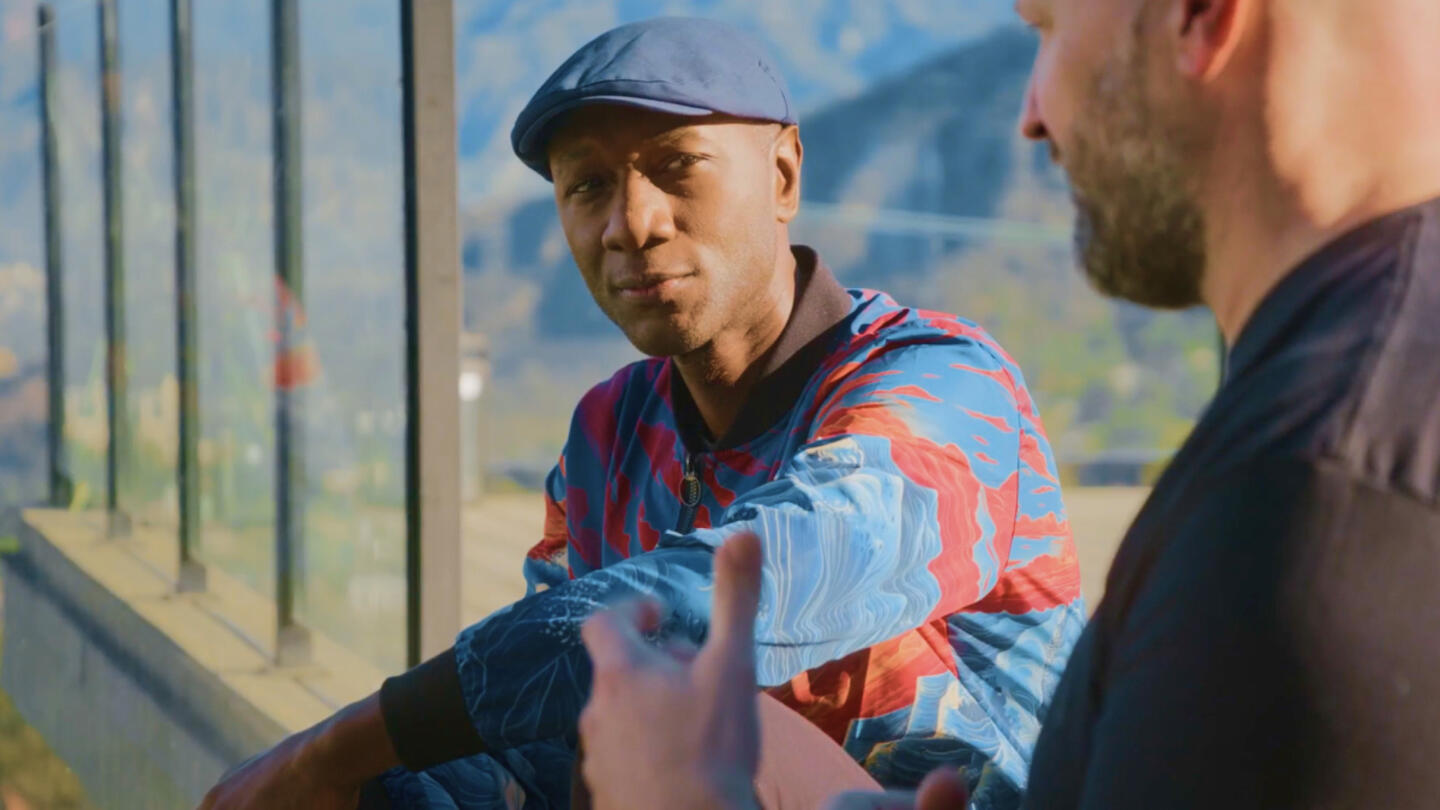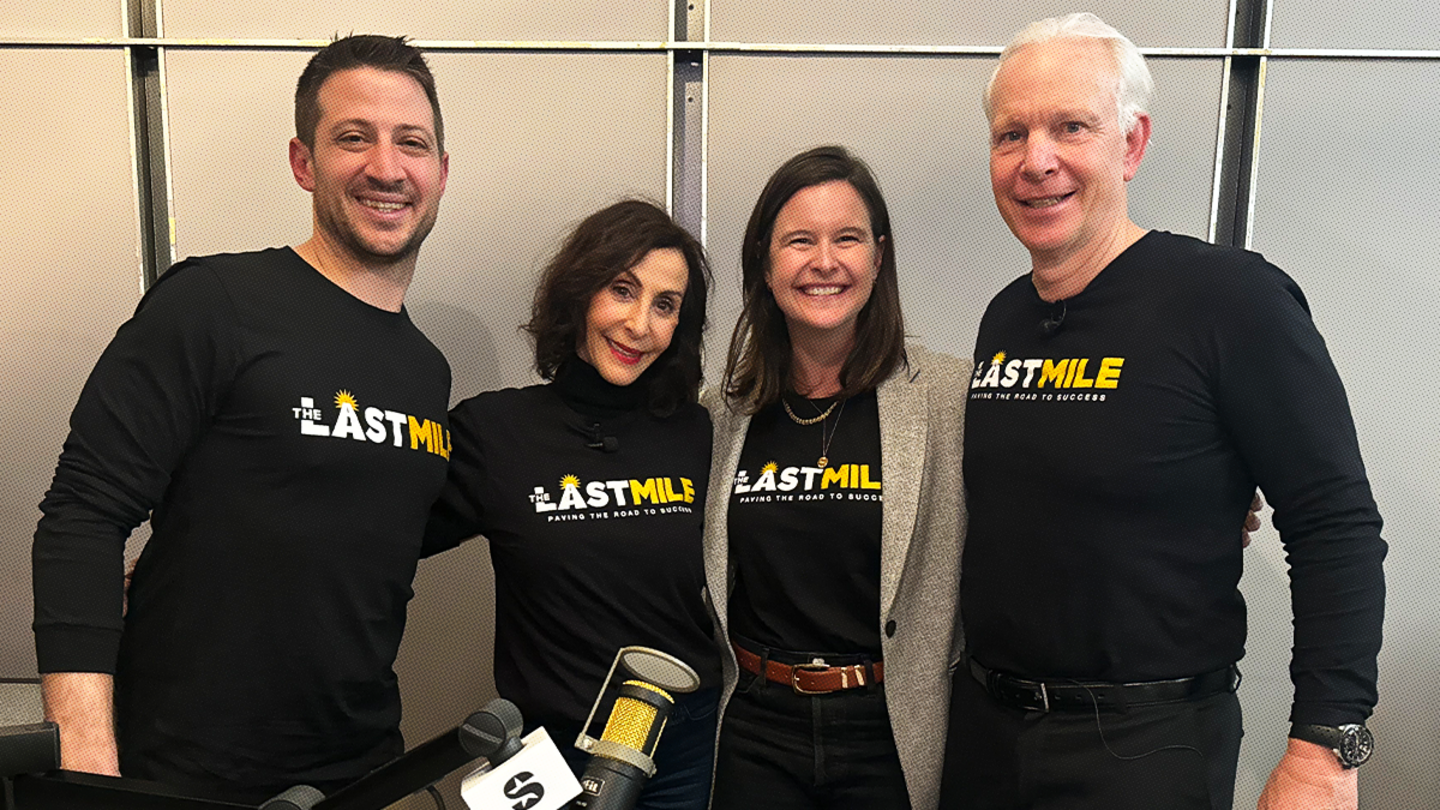The country’s poverty rate has not budged in the last 50 years. Addiction is rising and 82% of people released from U.S. prisons are eventually jailed again.
These challenges persist because society misjudges people and problems, Stand Together Vice President Evan Feinberg told The Last Mile Radio hosts Chris Redlitz and Beverly Parenti. To end poverty or mass incarceration, we must recognize the dignity of each individual and understand the best solutions come from innovators who take the time to understand critical challenges, not just manage them.
That’s the tactic The Last Mile takes. The organization provides technical training to incarcerated individuals to drive down the recidivism rate and help people live lives of purpose and meaning. It discovered that using the knowledge of people in communities affected by problems, rather than falling back on top-down cookie-cutter solutions, produces better results in the long term.
There’s proof it’s working. With The Last Mile’s technical training, for example, incarcerated individuals evolve into highly skilled, motivated, and valuable professionals who deliver for their employers. The recidivism rate for participants is just 4%. It’s evidence that when we give people closest to societal issues the freedom to solve those problems, better solutions emerge.
In the April 2024 episode of The Last Mile Radio podcast, a portion of which is highlighted below, Feinberg, Redlitz, and Parenti discuss this success and why thinking about people and problems differently will solve other pressing problems like poverty and recidivism. The conversation has been edited for length and clarity. Listen to the entire podcast episode here.
We cannot simply manage society’s toughest problems and expect change
Feinberg, Redlitz, and Parenti discussed why some organizations differ from other programs that attempt to solve some of society’s greatest challenges.
Feinberg: When Stand Together started, we knew there were people in communities across the country who were doing the work. Not the people who were managing the symptoms of poverty or incarceration, but people who were driving new and better ways of helping to overcome those barriers and help people be the best they could be. All of them were doing different things — solving addiction, solving homelessness — but really, they were all doing the same thing. They were believing in people, they were empowering them from the bottom up, and they were driving changes to the way we think about and tackle problems in society.
Organizations like The Last Mile don’t just deliver a program or do one thing over and over again. They continually transform because they are constantly discovering what is going to enable people to overcome barriers and realize their full potential.
Redlitz: Coming from the venture business where you have to prove yourself, we said if we prove what we’re doing, people will understand and support it. It’s about innovation.
Feinberg: If you think about the way our country has tackled poverty, it’s as a resource problem. People lack something — how can we provide what they lack? You’re focused on the deficiency, and how do we effectively manage the deficiency. But if we knew what works, we would have solved these problems a long time ago. The need is not for efficient delivery of services or resources. The need is for social entrepreneurship and changemaking. Discovery. Innovation, as you put it. We need to find out what will work and realize what works today might not work tomorrow. We need social entrepreneurs who will be as dynamic as the problems that our country has.
Sign up for the Strong & Safe Communities newsletter for stories, ideas, and advice from changemakers working with their neighbors to address the biggest problems we face.
Empowerment works in treating those experiencing addiction. The same approach could reduce recidivism.
The Phoenix, which provides peer-to-peer support to help individuals overcome substance-use, is one organization Feinberg, Redlitz, and Parenti agreed is not focused merely on filling a void. The three discussed the organization’s success and how its example will inspire other problem solvers to stop focusing on what a person is lacking, and instead look at what they can offer.
Feinberg: The Phoenix will get to a million people in recovery very soon. That’s a meaningful percentage of individuals experiencing addiction in the country, but that’s not why the organization is so powerful. It’s powerful because if that many people are experiencing recovery, and if people hear about it, you get a cultural movement where people realize a very important thing about addiction recovery and about human beings more generally: that if you focus on belonging, and belief, and contribution in the lives of others, people can live lives of incredible success and meaning and purpose.
In the criminal justice space, the moment the culture starts to see individuals who are incarcerated for their humanity and potential, that’s when we start incarcerating fewer people. It’s when we start acting in a way that rehabilitates and offers redemption.
Parenti: It’s vitally important to change the culture inside companies that are hiring formerly incarcerated people, too. It’s how they will have successful careers.
Feinberg: I fear sometimes second chance hiring is talked about like charity. That makes the ceiling for change really low. But when you start to see incarcerated individuals for their skills and talents, rather than deficiencies, you start to realize, well those are absolutely people I want to be leading teams and driving new opportunities in my company. Instead of seeing it as a second chance, seeing it as untapped talent pools is going to totally transform the way we operate in business. We need to think differently, even among those who are advocating for good things, and start to see people differently.
The solution to so many problems is to see people for their humanity and dignity
In late 2023, after meeting only the night before, the recording artist 50 Cent joined Redlitz and Parenti at an Indiana penitentiary training. That story spurred an exchange about how millions of Americans, from famous musicians to next door neighbors, want to effect change in their communities.
Feinberg: America is full of good people who want to get good things done. I’ll give you a statistic from my friend Todd Rose who runs a public opinion research group called Populace. If you ask people what a good life looks like, what does success look like, what does the American Dream look like, across the board, every demographic, one of the top things people say is “I want to make a positive impact on my community.” But almost no one thinks they’re making a positive impact on their community. They just don’t yet know how, where, and what to do, and that’s what this incredible community of social entrepreneurs and changemakers can offer — opportunities to get engaged and make a difference together.
Redlitz: As we close, want to drill down specifically on criminal justice reform. If there’s one thing that could change, what would that be?
Feinberg: I’m going to keep going back to the way we view individuals who are incarcerated ... The way our criminal justice system dehumanizes and strips people of their dignity, we’re just way too quick to lock people up in general. The overcriminalization in our society, whether it’s the war on drugs or the number of people that we’re incarcerating in the war on drugs, it’s an injustice that’s putting so many people behind bars in ways that are destroying lives and destroying entire communities. I would start with people seeing individuals for their humanity and dignity, which would prevent us from accepting any of this.
***
The Last Mile is supported by Stand Together Foundation, which works with the nation’s most transformative nonprofits to break the cycle of poverty.
Learn more about Stand Together's efforts to build strong and safe communities and explore ways you can partner with us.

At this ‘resort,’ children with intellectual disabilities are seen as gifts to be celebrated and loved.

Veterans experience loss when leaving service. Could this be key to understanding their mental health?

The Grammy-nominated artist is highlighting the stories we don’t get to hear every day.

With his latest project, Blacc isn’t just amplifying stories — he’s stepping into them
